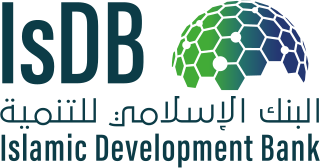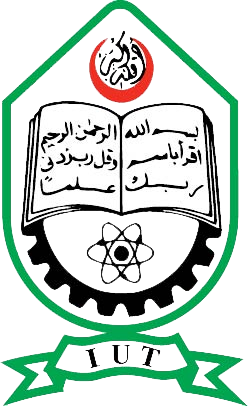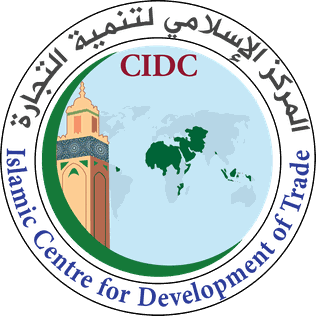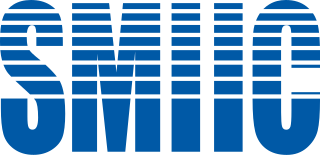
The Organisation of Islamic Cooperation, formerly the Organisation of the Islamic Conference, is an intergovernmental organization founded in 1969, consisting of 57 member states, with 48 being Muslim-majority countries. The organisation states that it is "the collective voice of the Muslim world" and works to "safeguard and protect the interests of the Muslim world in the spirit of promoting international peace and harmony".

The Islamic Development Bank is a multilateral development finance institution that is focused on Islamic finance for infrastructure development and located in Jeddah, Saudi Arabia. There are 57 shareholding member states with the largest single shareholder being Saudi Arabia.

The Economic Cooperation Organization or ECO is an Asian political and economic intergovernmental organization that was founded in 1985 in Tehran by the leaders of Iran, Pakistan, and Turkey. It provides a platform to discuss ways to improve development and promote trade and investment opportunities. The ECO is an ad hoc organisation under the United Nations Charter. The objective is to establish a single market for goods and services, much like the European Union. After the dissolution of the Soviet Union, the ECO expanded to include Afghanistan, Azerbaijan, Kazakhstan, Kyrgyzstan, Tajikistan, Turkmenistan, and Uzbekistan in 1992.

Ekmeleddin Mehmet İhsanoğlu is a Turkish academic, diplomat and politician who was Secretary-General of the Organisation of Islamic Cooperation (OIC) from 2004 to 2014. He is also an author and editor of academic journals and advocate of intercultural dialogue.

Islamic University of Technology, commonly known as IUT, is an engineering university located in Gazipur, Bangladesh. IUT offers undergraduate and graduate programs in Engineering and Technical Education.This is an Engineering University located in Bangladesh.
Turkey is a founding member of the United Nations, the Organisation of the Islamic Conference, the Organisation for Economic Co-operation and Development and the Organization for Security and Co-operation in Europe, a member state of the Council of Europe since 1949, and of NATO since 1952. Since 2005, Turkey is in accession negotiations with the European Union, having been an associate member since 1963 and is also in European Customs Union. Turkey is also a member of the G20 industrial nations which brings together the 20 largest economies of the world.
The Islamic University in Niger (IUIN) is an international university in Say, Niger west of Niamey. Students and faculty study in Arabic, French, and English.
Standing Committee for Scientific and Technological Cooperation (COMSTECH) is one of four standing committees of the Organisation of Islamic Cooperation dedicated to the promotion and cooperation of science and technology activities among the OIC member states.
The economy of the Organisation of Islamic Cooperation (OIC) combines the economies of 57 member states. 53 are predominantly Muslim states. As of 2013, the combined GDP (nominal) of 49 Muslim majority countries was US$5.7 trillion. As of 2016, they contributed 8% of the world's total. Those 57 OIC countries have a combined GDP of US$22.149trillion. The largest economic country based on total PPP and Nominal GDP is Indonesia. The richest country on the basis of GDP per capita at PPP is United Arab Emirates. On basis of per capita GDP, Qatar is richest country with incomes exceeding US$133,357 per capita. According to a report by Salam Standard, the GDP impact of the world’s Muslim tourism sector exceeded $138 billion in 2015, generating 4.3 million jobs and contributing more than $18 billion in tax revenue.

The Islamic World Academy of Sciences (IAS) is a non-profit organisation of scientists and technologists that works for the promotion of science and technology in the Islamic world. It was founded in 1986.
The United Nations Interregional Crime and Justice Research Institute (UNICRI) is one of the five United Nations Research and Training Institutes. The institute was founded in 1968 to assist the international community in formulating and implementing improved policies in the field of crime prevention and criminal justice. Its work currently focuses on Goal 16 of the 2030 Agenda for Sustainable Development, that is centred on promoting peaceful, just and inclusive societies, free from crime and violence.
The International Islamic Trade Finance Corporation (ITFC) aims to develop and expand intra-Organisation of Islamic Cooperation trade.
The Committee for the Coordination of Statistical Activities (CCSA) is composed of international and supranational organisations, whose mandate includes the provision of statistics. The CCSA promotes inter-agency coordination and cooperation on statistical programmes and consistency in statistical practices and development. As a forum of committed members, the CCSA fosters good practices in the statistical activities of international and supranational organisations, in accordance with the principles governing international statistical activities. The members of the CCSA contribute actively to the development of a coordinated global statistical system producing and disseminating high-quality statistics.

The Islamic Solidarity Sports Federation is the supreme authority governing the Islamic Solidarity Games. It is an international, non-profit, non-governmental organization based in Riyadh, Saudi Arabia. Its mission is to increase the cooperation between the Islamic countries through sports. Currently, HRH Prince Abdulaziz bin Turki bin Faisal bin Abdulaziz Al Saud from Kingdom of Saudi Arabia is ISSF President since 8 April 2019.
In 1991, Azerbaijan joined the Organisation of Islamic Cooperation and started to build relations with the organization. As a result, the ambassador of Azerbaijan to Saudi Arabia was given a mandate of permanent representative of Azerbaijan to the General Secretariat of the OIC in May 1994.

The Research Centre For Islamic History, Art and Culture, also known as the Istanbul Research Center for Islamic Culture and Arts is the first cultural centre and a subsidiary organ of the Organisation of Islamic Cooperation established in 1979 after the Republic of Turkey proposed IRCICA in the 7th Islamic Conference of Foreign Ministers, in Istanbul, 1976. The proposal was adopted by the OIC under the resolution no. 3/7-ECS. It formally started inaugural functioning on 23 May 1982.

The Council of Foreign Ministers, formerly known as Islamic Conference of Foreign Ministers, is the main decision-making body of the Organisation of Islamic Cooperation consisting one representative from each member states of the OIC. It is the largest decision-oriented intergovernmental organization that holds conferences every year called Islamic Summit pertaining to the issues concerning Muslim nations and the OIC's agenda. The 48th summit is scheduled to be held in Islamabad, Pakistan on 22 March 2022.

Islamic Centre for Development of Trade is an intergovernmental organization and one of the seven subsidiary organs of the Organisation of Islamic Cooperation entrusted with the promotion of trade, economic development and commercial cooperation in public and private sectors across the 57 member states.

Women Development Organization, is an intergovernmental organisation and one of the eight specialized institutions of the Organisation of Islamic Cooperation focused on conducting major steps for women's development. It plays a central role in structuring and maintaining internal regulations for women's empowerment with the 15 Islamic countries out of 57 member states. It is principally focused on four standards, including women's role in combating extremism, women in positions of power and decision-making, women's protection against violence, and women's empowerment, economic development and financial inclusion.

Standards and Metrology Institute for Islamic Countries is an intergovernmental and one of the 17 affiliated organizations of the Organisation of Islamic Cooperation. Its primary focus is on standardization and metrology technical elements. It is principally focused on the procedures for the removal of technical barriers concerning standards covering materials, manufacturers and products. It coordinates with the 37 member states and two observers for the administrative tasks for the trade development within the framework of the OIC.











